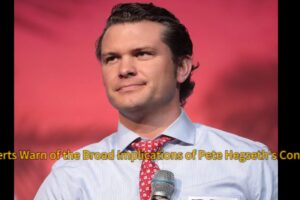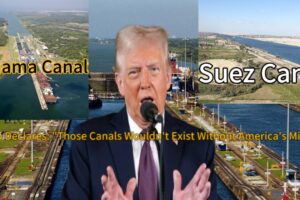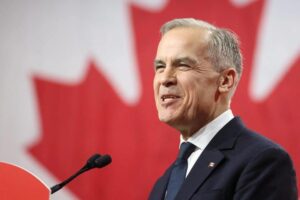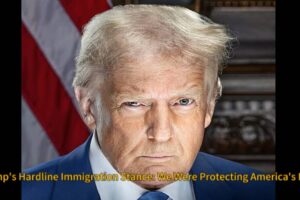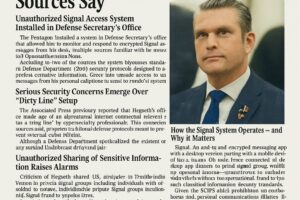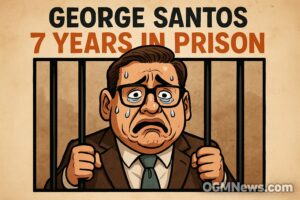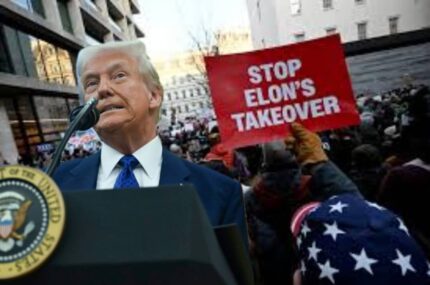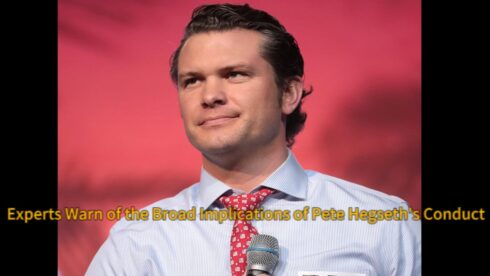Former President Donald Trump’s sweeping cuts to the federal workforce have triggered controversy after it was revealed that over 300 workers overseeing the nation’s nuclear arsenal were among those dismissed. The layoffs, part of Trump’s broader effort to reduce federal bureaucracy with the backing of billionaire Elon Musk, included significant cuts to the National Nuclear Security Administration (NNSA), the agency responsible for managing America’s nuclear stockpile.
The decision to terminate these employees quickly backfired, as concerns over national security mounted. While an administration spokesperson claimed the cuts primarily affected administrative and clerical roles, multiple sources within the NNSA argued that the layoffs included key personnel such as weapons inspectors, regulatory supervisors, and contractors responsible for maintaining nuclear weapons. The backlash forced Trump to partially rescind the firings, though it remains unclear how many employees were reinstated.
Trump and Musk’s Radical Downsizing of the Federal Workforce
The NNSA firings were just a fraction of a larger effort by Trump and Musk to dramatically reduce the size of the federal government. In a single week, more than 9,500 federal employees were laid off across multiple agencies, including the Departments of Energy, Veterans Affairs, Agriculture, and Health and Human Services. An estimated 200,000 additional employees could be affected in the coming months, marking one of the largest bureaucratic overhauls in U.S. history.
The administration initially focused on cutting probationary workers who had not yet gained civil service protections. However, reports indicate that even seasoned experts in critical fields, including nuclear security and environmental protection, were dismissed. The layoffs also extended to agencies like the Consumer Financial Protection Bureau and the Department of Education, raising alarms about the potential long-term consequences of such drastic cuts.
Backlash Over Mishandling of Nuclear Security Workforce
The decision to fire hundreds of nuclear security personnel sparked a fierce backlash from both political opponents and national security experts. Critics argued that the White House failed to grasp the complexity and importance of the NNSA’s work, leading to reckless terminations that could endanger America’s nuclear deterrence strategy.
Former Transportation Secretary Pete Buttigieg was among those who criticized the administration, calling the incident an example of “incompetence at the highest level.” Democratic Representative Eugene Vindman also condemned the move, describing it as an act of “chaos” that could severely undermine national security.
Internally, sources from the NNSA expressed frustration, accusing the administration of making uninformed decisions without consulting experts. One insider stated, “No one has taken any time to understand what we do and the importance of our work to the nation’s security.”
Legal Challenges and Calls for Oversight
The fallout from the layoffs has led to legal challenges and demands for congressional oversight. A group of eight dismissed government watchdogs has filed a lawsuit seeking reinstatement, arguing that their terminations were politically motivated and unlawful. The case is expected to test the limits of the president’s authority to reshape the federal workforce unilaterally.
Meanwhile, congressional Democrats have raised concerns about the constitutionality of Trump’s executive order directing agencies to prepare for large-scale reductions. Some lawmakers argue that the president is overstepping his authority by making unilateral spending decisions that should fall under congressional oversight.
Despite these challenges, Trump has remained defiant, defending the cuts as necessary to eliminate “wasteful spending” and reduce the national debt, which stands at approximately $36 trillion.
Musk’s Expanding Role in Government Restructuring
Elon Musk’s influence over the federal restructuring effort has also drawn scrutiny. As Trump’s close adviser on government efficiency, Musk has been a vocal advocate for slashing federal spending. Speaking at the World Governments Summit in Dubai, he called for the elimination of entire agencies, arguing that “if we don’t remove the roots of the weed, then it’s easy for the weed to grow back.”
Under the new hiring restrictions, agencies are required to obtain approval from a representative of Musk’s Department of Government Efficiency (DOGE) before making new hires. The policy, which prioritizes reducing bureaucracy, allows only one employee to be added for every four who leave—except in critical areas such as public safety.
Musk’s deep involvement in federal workforce decisions has raised concerns about the privatization of government functions and the influence of corporate leaders over public administration. Some critics argue that the current approach risks destabilizing essential services, from nuclear security to environmental protection and veteran care.
A Costly and Controversial Gamble
Trump’s aggressive push to shrink the federal government, while politically popular among some conservatives, has ignited a firestorm of controversy. The unintended consequences of firing key nuclear security personnel highlight the risks of hasty decision-making without a clear understanding of government functions.
As the administration continues to implement sweeping cuts, questions remain about the long-term impact on national security and public services. With legal challenges mounting and bipartisan concerns emerging, the Trump-Musk downsizing experiment may face significant obstacles in the months ahead.

